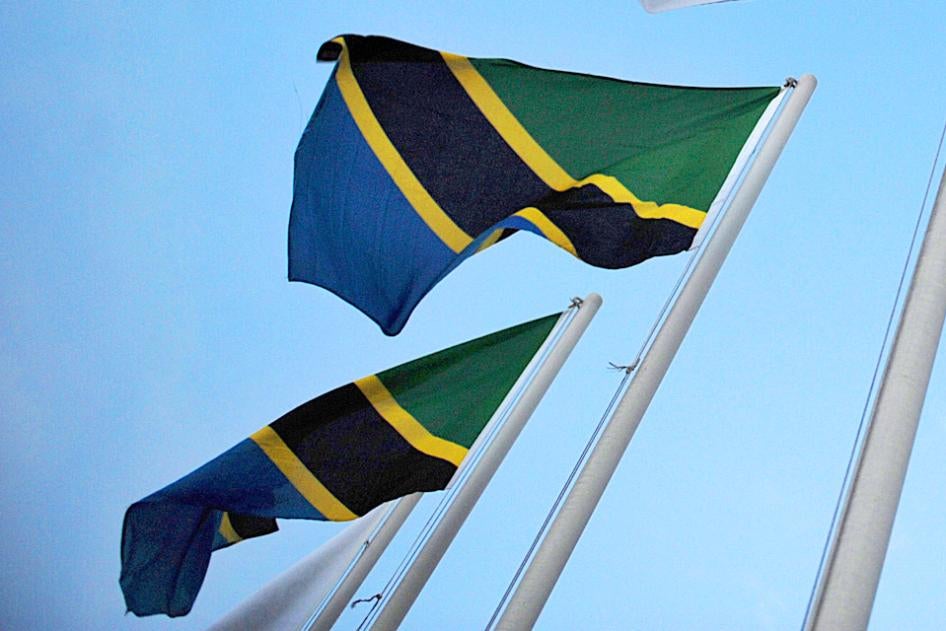(Nairobi) – Tanzania’s pledge to adopt guidelines to guarantee that schools ensure adolescent mothers can return to schools by June 2022 is an important turning point for girls’ education, Human Rights Watch and Accountability Counsel said today.
On March 8 the Tanzanian government and the World Bank had published their agreement to restructure Tanzania’s Secondary Education Quality Improvement Program (SEQUIP), financed by a US$500 million loan from the World Bank, to adopt new measures to effectively end a school ban against students who are pregnant or are mothers.
“Tanzania’s government has taken an important and encouraging first step to redress a longstanding injustice against girls,” said Elin Martinez, senior children’s rights researcher at Human Rights Watch. “The authorities should now expedite the adoption of robust rights-compliant guidelines and include in both its law and its policy protections for students who are pregnant or are mothers.”
On November 24, 2021, the Ministry of Education, Science and Technology published a circular that states that pregnancy and motherhood are not grounds for expulsion from government schools. Girls who are mothers are allowed to return to public schools to resume their studies. Tanzania had been among a handful of countries in Africa that explicitly banned girls who became pregnant or are mothers from its schools.
The restructure agreement, which ties funding disbursements to carrying out pledges and objectives, sets out “continuation guidelines” that specify how long pregnant girls are allowed to remain in school before taking a leave of absence to give birth and how soon after giving birth a student is allowed to return to school. The government has also pledged to forbid “involuntary pregnancy testing,” which is compulsory in the vast majority of secondary schools and is used to expel pregnant students. The government will also establish a monitoring system to track both girls’ return to public schools to continue their studies and how well the local authorities adhere to the guidelines.
The government’s guidelines and accompanying measures need to be concrete, immediate measures to eliminate various barriers faced by girls who are pregnant or are mothers. But the government will also need to adopt other steps to undo systemic harmful practices in its education system and deepen protections for girls who are pregnant or are mothers.
The government should update the Education Act to remove provisions in the 2002 Education (Expulsion and Exclusion of Pupils from Schools) Regulations that allow schools to expel students who have “committed an offense against morality” or “entered into wedlock,” and the 2016 amendment to this Act, which mandates heads of schools to report marriages and pregnancies to the district or regional commissioners.
Human Rights Watch’s comprehensive research on laws that protect pregnant students’ right to education in over 30 African Union countries found that guidelines are often a stepping stone toward adopting a legally binding national policy. To be human rights compliant, guidelines or policies that address continuation in schooling should focus on supporting students to stay in school, and minimizing the time girls are out of school.
The government should avoid setting strict or burdensome conditions that require girls to re-enroll in school; for example, prescribing a mandatory or inflexible period of absence after giving birth. The policy should also provide special accommodations for young mothers at school, for instance time for breast-feeding, time off when babies are ill or to take them to health clinics, and access to nurseries or early childhood centers close to schools.
The World Bank restructure agreement also calls for the establishment of a task force to develop the government’s Safe Schools Program, planned under SEQUIP to “create a safe learning environment for students,” reduce violence in secondary schools, and strengthen support for adolescent girls.
The government should also establish a transparent accountability framework to include a system to redress grievances at the school and national level and provide opportunity for students, civil society organizations, communities, and other “stakeholders” to raise issues and concerns related to education.
The previous ban in Tanzania on schooling for students who were pregnant or had a child had disastrous consequences. The World Bank estimates that 6,500 pregnant students stop going to school in Tanzania every year, although nongovernmental organizations have previously estimated that close to 8,000 students have been forced to drop out of school each year.
“To ensure it successfully carries out the continuation guidelines and other components tied to its SEQUIP program, the government will need to create opportunities for consultation and continually engage with civil society organizations, adolescent mothers, and others affected by the program,” said Teresa Mutua, senior communities associate at Accountability Counsel. “It is imperative for the government to ensure that all engagement channels are effectively functioning.”









